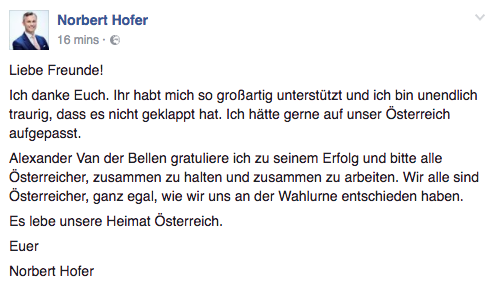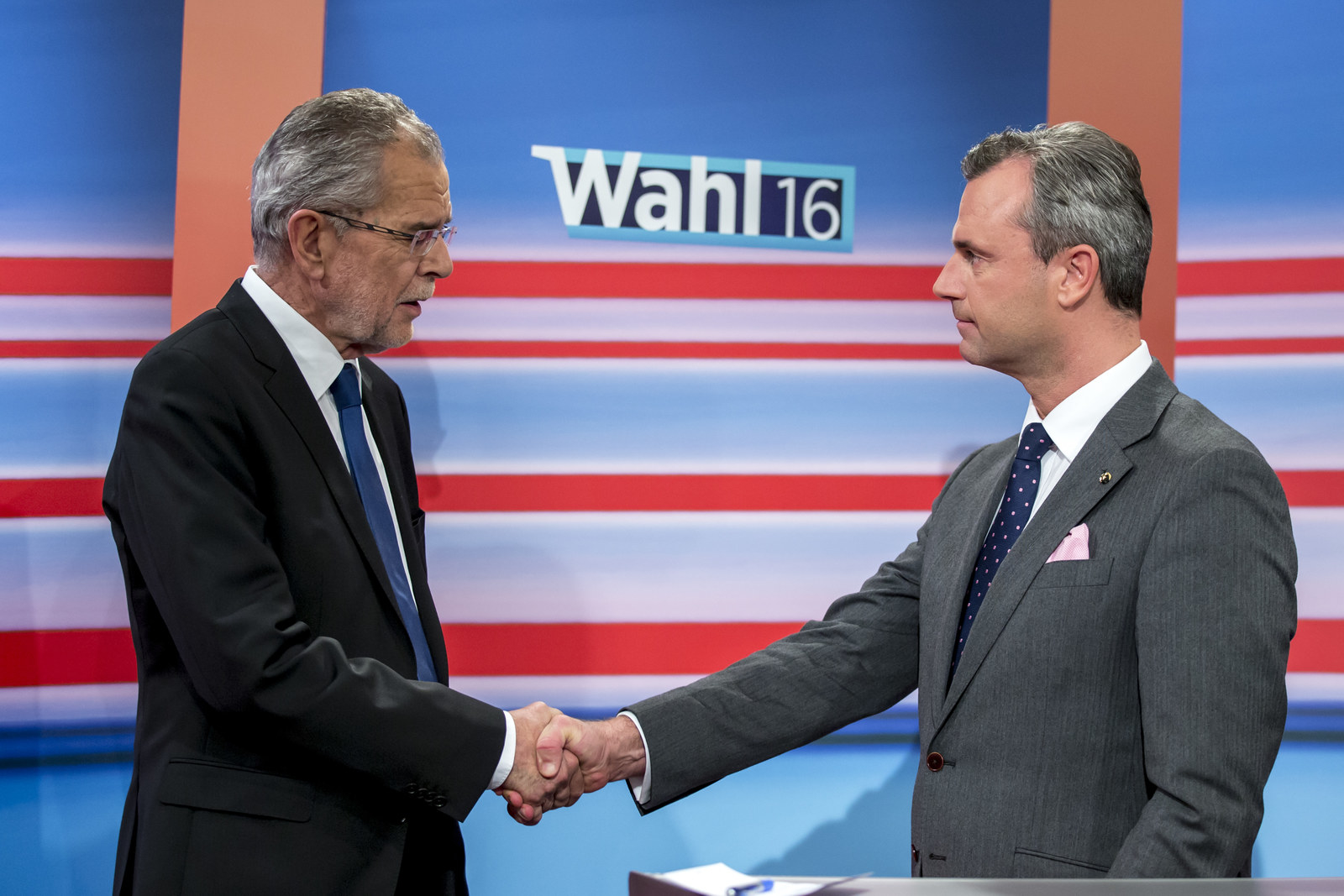
The far-right candidate in Austria’s presidential election conceded defeat on Sunday, obstructing the advance of the global populist movement in Europe.
Norbert Hofer, who would have become Europe’s first democratically elected far-right head of state since the end of World War II, said shortly after polls closed that he had been defeated by independent Green candidate Alexander Van der Bellen.

Although full official results are not yet known, Austria's state broadcaster, ORF, forecast that with 69% of votes declared, Van der Bellen led 53.3% versus 46.7% for Hofer, of the anti-immigration and anti-Islam Freedom Party (FPÖ).
Writing on his Facebook page, Hofer thanked supporters and expressed sadness that the the result had not gone his way.

According to Reuters, Hofer's campaign manager, Herbert Kickl, told ORF: "The bottom line is it didn’t quite work out. In this case the establishment – which pitched in once again to block, to stonewall and to prevent renewal – has won."
Writing on Twitter, French far-right leader Marine Le Pen – who hopes to become her country's president next year – praised the FPÖ for its "courage" during the election and wished it success next time.
Félicitations au FPÖ qui s'est battu avec courage. Les prochaines législatives seront celles de leur victoire ! MLP
Van der Bellen narrowly won the initial second round contest between the two men in May, but the result was cancelled due to voting irregularities, necessitating Sunday's rerun.

The role of president in Austria is traditionally ceremonial, traditionally reflecting the will of the country's parliament.
Van der Bellen's victory marks the first time in Austria's postwar history that the presidency is not held by either of its two main parties, the Social Democrats (SPÖ) or the conservative People’s Party (ÖVP).
Alberto Nardelli contributed to this report.
